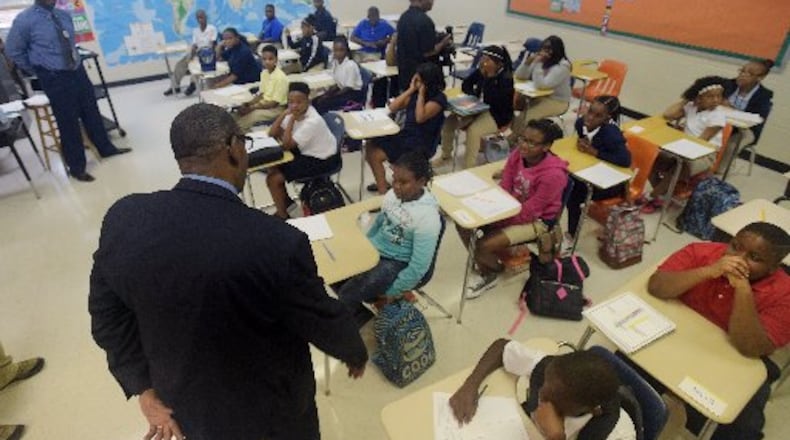The DeKalb County School District’s decision to eliminate teacher certification waivers as a way to fill classrooms likely exacerbates a critical hiring shortage as the new school year approaches.
Linda Woodard, the district’s interim chief human capital management officer, said during Monday’s monthly DeKalb County Board of Education meeting that the district currently had 170 special education teacher vacancies.
“We have put together an aggressive plan” to fill those vacancies, Woodard told the school board Monday. “Every time someone applies as a special ed teacher, we’re picking up the phone and we’re calling them and letting them know what we need.
“Right now, we are loving on special education candidates.”
Many of the district’s teachers on certification waivers were covering hard-to-fill positions in special education as well as science, technology, engineering and mathematics (STEM). The practice was eliminated by Bernice Gregory, who ran the district’s human resources division from April 2018 until her departure in late January. Gregory said upon her arrival to the district that she would take a look at the program and work toward getting all participants certified in their respective fields, because a certified professional needed to be at the front of every classroom.
“We are giving them a timeline to get into a program,” Gregory said last summer. “We’re not taking the waivers away, but we’re trying to … give (teachers) the support they need.”
Most metro Atlanta school districts employed a few dozen teachers each year through certification waivers. Clayton County disavowed the practice. DeKalb had about 300 at the start of the 2018-2019 school year.
Teacher certification waivers have long been a sore spot with teachers and education advocates. While the certification waivers can help districts guide talented people through the certification process, the shortcut often is used to get cheaper teachers into the classroom and to plug vacancies for hard-to-fill subjects. The teachers, called “underprepared” by researchers, also have a higher turnover rate than their certified counterparts.
When the waivers began being used in DeKalb, board member Joyce Morley peppered officials with questions about how the process would work to allow those professionals to achieve certification.
“We need to have a short-term, long-term plan … that these people start working on certification,” Morley said in early 2017. “There is no plan right now. Just because you have it (the ability to use teachers who are not certified) doesn’t mean you use it to death.”
Hiring teachers in Georgia has become harder as districts increase starting pay to become more competitive and the number of people wanting to become teachers in Georgia shrinks. During the 2007-2008 school year, 12,436 students received teaching certificates for the first time, according to Georgia Professional Standards Commission data. That number currently is closer to 8,000. A similar trend exists nationally.
Woodard, DeKalb Schools’ interim human resources chief, said she was told by the Georgia Professional Standards Commission that just 600 people in the state have applied for special education certification.
“I’m very concerned about that,” Woodard told the school board.
About the Author
Keep Reading
The Latest
Featured



